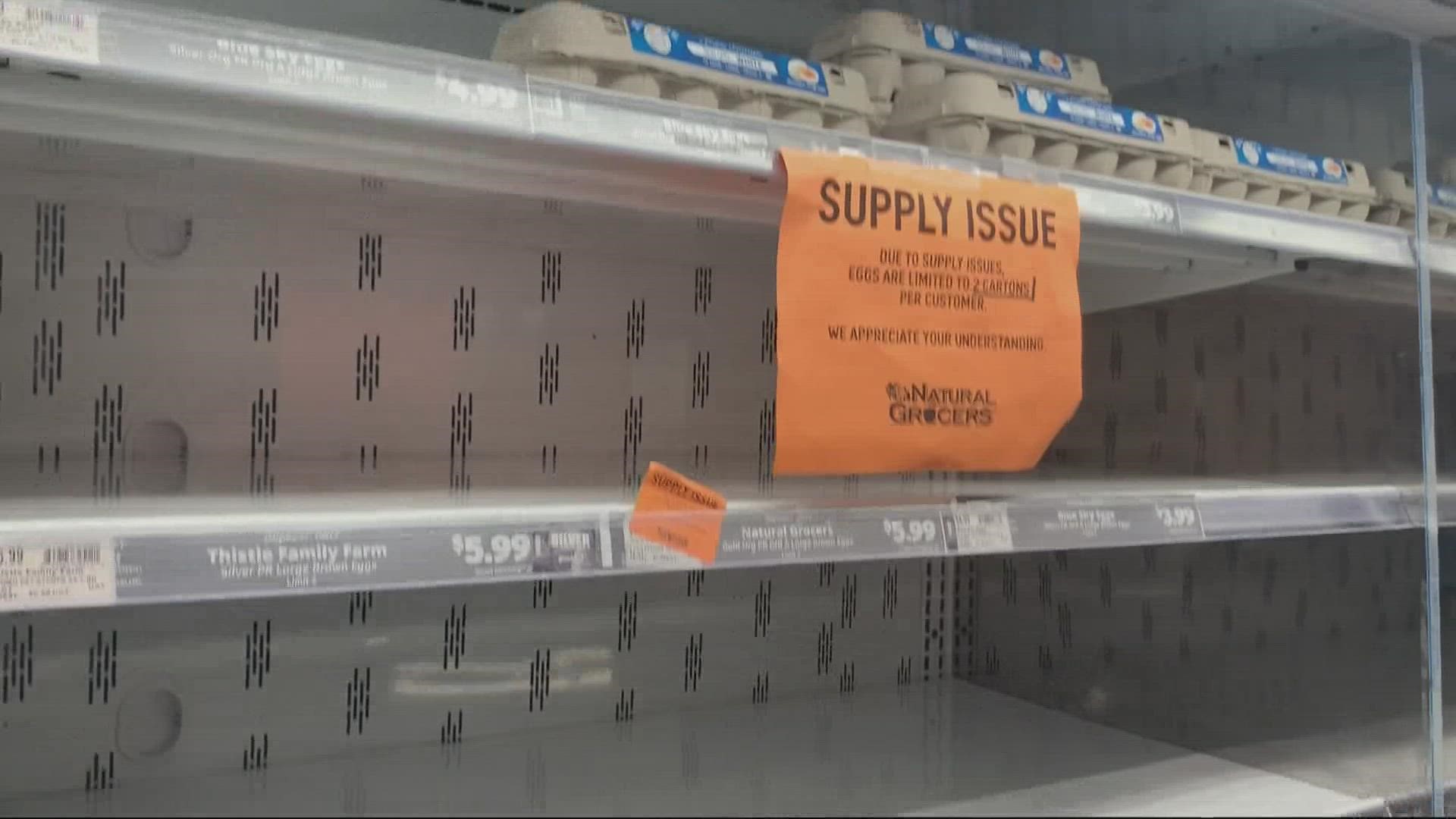PORTLAND, Oregon — Grocery stores around the country — and some in Oregon — are once again struggling to keep eggs in stock while prices for the food staple continue to rise amid a national supply shortage.
Since last February, the U.S. Department of Agriculture reports an outbreak of the deadly and highly contagious avian flu has killed more than 43 million egg-laying hens. The virus hit in two waves, from February to June and another between September and December.
"The strains are kind of changing and we're seeing some resistance come in," said Bernt Nelson, an economist with the American Farm Bureau Federation. "So when you go to the grocery store, you're seeing egg prices much higher than they've been.”
Data from the Bureau of Labor and Statistics showed the national average price for a dozen large, grade-A eggs hit $4.25 in December. That’s up from a $1.79 from one year earlier.
KGW checked in with several grocery stores around Southeast Powell Boulevard and Southeast Cesar E. Chavez Boulevard. Pickings were slim at Trader Joe's, which limited customers to one carton of eggs per purchase.
It was a similar story at Natural Grocers which limited customers to two cartons. Both stores posted signs citing supply chain issues for the shortage. A nearby New Seasons Market was sold out of eggs. The store posted a sign that read, "We apologize for our less than eggcellent section." A spokesperson for the Portland-based chain told KGW they're working closely with suppliers to ensure they have the best selection possible for their customers.
A Safeway and Fred Meyer store in the same area had plenty of eggs on their shelves, with more boxes in stock.
If you know where to go, you can also buy eggs straight from the farmer.
"They're super fresh, ours do not sit around for very long,”" said Geoff Scott, co-owner of Marion Acres and Helvatia Farm Market in Hillsboro.
The grass-based farm has around 500 egg-laying hens. Scott said fortunately, the avian flu hasn’t reached them, though he said production is always slightly lower during winter months.
"It is unfortunate that people can't get their eggs [in stores], but I'm excited for any reason that has people look close to where they live for people producing high quality food," Scott said.
At $7.99 a dozen, the eggs Scott sells aren't cheap, though many high-end grocers charge more for eggs than that. Scott suggested customers get what they pay for.
"Buy the eggs, then taste them, then tell me it's the same thing you're buying for $3.99 at Freddie's. I can guarantee you it is not," said Scott.
Resources like Local Harvest and and the Oregon Pasture Network connect people with places that sell farm-fresh eggs. Scott said many local farms are also able to dodge a lot of wavering supply chain issues.
"You won't be so susceptible to the winds of high diesel prices, and corn prices in the mid-west," he said.
Experts say those supply chain challenges are another major factor consumers are paying for, from fuel to fertilizer.
"As long as all of those things stay in play," said Nelson, "we're going to see those input costs stay elevated."

